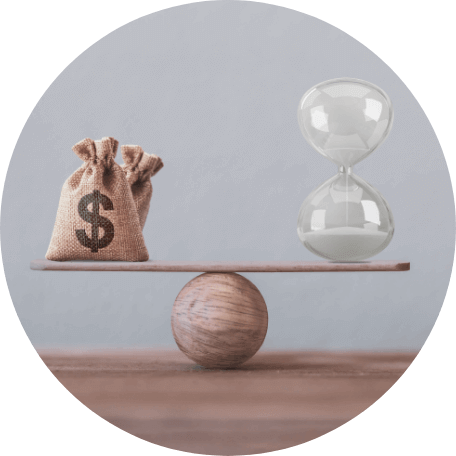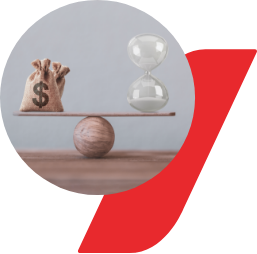Personal Injury Lawyers Boating Accident Compensation Claims
Have you been injured due to a boating or jet-ski accident? Our expert team of public liability claim lawyers will fight for the compensation you deserve.
Stacks Goudkamp Services
PUBLIC LIABILITY COMPENSATION CLAIMS
Boating Accident Compensation Claims
When you’re enjoying time on the water, you expect vessel operators and marine facilities to prioritise safety. Boating accidents can have devastating consequences for your health and wellbeing, often occurring in remote locations where emergency assistance may be delayed, making proper safety precautions even more critical.
Boating accidents can occur in many ways and locations. These preventable incidents include collisions between vessels due to operator negligence, accidents caused by inadequate safety equipment or faulty vessel maintenance, slip and fall injuries on wet decks or poorly maintained walkways, injuries from defective marine equipment or machinery, accidents during water sports activities with insufficient supervision, ferry and commercial vessel incidents involving passenger safety failures, marina and dock accidents due to poor maintenance or design, carbon monoxide poisoning from faulty exhaust systems, and drowning incidents where proper safety measures weren’t implemented. Even routine marine activities can result in life-changing consequences when vessel operators fail to follow maritime safety regulations or maintain their equipment properly.
Beyond the immediate physical trauma, boating accidents often lead to serious injuries requiring emergency evacuation, ongoing medical treatments, rehabilitation needs, time off work, and significant financial strain through lost income and mounting medical expenses, all compounded by the unique challenges of marine-based incidents.
At Stacks Goudkamp, we understand the profound impact boating accidents can have on your life and financial security. Our experienced personal injury lawyers have extensive experience helping victims of marine accidents throughout NSW in securing the compensation they deserve and holding vessel operators and marine facility owners accountable for maintaining safe operations.
If you have been injured in a boating accident due to operator negligence, inadequate safety measures, or poor vessel maintenance and suspect negligence played a role, our specialists can help determine if you have grounds for a successful claim.
Contact your local team for a personal consultation to find out if you are eligible to make a claim. Call 1800 251 800 or contact us today.
Understanding Boating Accident Claims
Every boating accident claim in NSW is different, and most cases involve complex legal considerations that require establishing maritime safety obligations and identifying all potentially responsible parties.
The starting point in understanding whether you may have a boating accident compensation claim is to contact Stacks Goudkamp to discuss your individual circumstances during a free initial assessment.
Boating accident claims are particularly challenging because they require proving that vessel operators, owners, or marine facility operators breached their duty of care through negligent operation, inadequate safety measures, or poor maintenance. These cases can be difficult to establish without proper legal investigation that examines maritime safety regulations, vessel maintenance records, operator qualifications, and compliance with safety standards.
What makes these claims especially complex is that multiple parties may share responsibility for your injury, including vessel operators who may have been negligent in their navigation or safety procedures, boat owners who failed to maintain their vessels or provide adequate safety equipment, charter companies that provided insufficient safety briefings or supervision, marina operators responsible for dock safety and maintenance, and equipment manufacturers whose defective products contributed to the accident.
However, all marine operators and facility owners owe passengers and water users a duty of care under maritime safety laws and general negligence principles. Vessel operators must maintain proper lookouts, follow navigation rules, ensure adequate safety equipment, and operate at safe speeds for conditions. Marina and facility operators must maintain safe docking areas, provide adequate lighting and safety features, and warn of known hazards.
If these parties breach their duty through negligent acts or omissions that cause injury, you may be entitled to compensation for your losses. Vessel operators, marine businesses, and facility owners must carry appropriate insurance which is activated through successful claims.
Why Choose Stacks Goudkamp For Your Boating Accident Claim?
Our experienced personal injury lawyers have extensive experience representing victims of boating accidents throughout NSW. We understand the unique challenges these cases present and the significant impact that marine accidents can have on your physical health, wellbeing, and financial security.
We know that pursuing a boating accident claim, while dealing with injuries that may have required emergency evacuation and complex treatment, can feel overwhelming. Our knowledgeable personal injury solicitors provide clear guidance through every step of the process, handling the complex legal aspects so you can focus on your recovery and rehabilitation.
Stacks Goudkamp has built an outstanding reputation in boating accident claims. We work closely with experienced maritime investigators, naval architects, and medical professionals who can precisely identify where vessel operators or marine facility owners failed in their duty of care. Our meticulous approach to gathering evidence, including vessel maintenance records, weather conditions, operator certifications, and expert maritime assessments, has resulted in numerous successful outcomes for our clients.
We understand that each boating accident case is unique, involving different types of vessels, accident circumstances, and responsible parties. Whether your accident involved a recreational boat, commercial vessel, ferry, charter boat, or marine facility, we tailor our approach to your specific circumstances and needs.
In your free initial boating accident assessment, we will advise you on whether you have a viable claim, identify all potentially responsible parties, explain applicable maritime laws and time limits, and outline our No Win, No Fee agreement. We handle boating accident claims on a No Win, No Fee basis, meaning you pay no legal fees unless you are successful. We also advance all expenses during your claim, including investigation costs, expert maritime reports, and medical assessments.
If you have been injured in a boating accident, contact Stacks Goudkamp today for a free, no-obligation consultation. Our experienced personal injury lawyers will listen to your experience, assess the circumstances of your marine accident, and explain how we can help secure the compensation you deserve for your injuries and losses.
Contact your local team for a personal consultation to find out if you are eligible to make a claim. Call 1800 251 800 or contact us today.
I would just like to thank Tom and Megan, as well as anyone who has been involved behind the scenes. From the get go you have all made me feel well informed & well supported. There was never a moment where I doubted that you all had my best interests at heart & that I could be confident
I would just like to thank Tom and Megan, as well as anyone who has been involved behind the scenes. From the get go you have all made me feel well informed & well supported. There was never a moment where I doubted that you all had my best interests at heart & that I could be confident
Read More Read Less
in being guided by your recommendations. I personally have struggled with the process of continuously recounting my experiences and focusing on the prospective issues I am likely to have from my injuries, but I am glad that we all stuck it out to the end & got a result I am very happy with and thankful for.

FREQUENTLY ASKED QUESTIONS
Boating Accident Compensation Claims
What types of boating accidents can I claim compensation for?
Boating accidents that may qualify for compensation include:
- Collisions between vessels due to operator negligence or failure to maintain proper lookout
- Accidents caused by inadequate safety equipment or faulty vessel maintenance
- Slip and fall injuries on wet decks, poorly maintained walkways, or unsafe boarding areas
- Injuries from defective marine equipment, machinery, or vessel components
- Accidents during water sports activities with insufficient supervision or safety measures
- Ferry and commercial vessel incidents involving passenger safety failures
- Marina and dock accidents due to poor maintenance, design defects, or inadequate lighting
- Carbon monoxide poisoning from faulty exhaust systems or poor ventilation
- Drowning incidents where proper safety measures weren’t implemented
- Injuries from vessel fires or explosions due to mechanical failures
- Accidents caused by operators under the influence of alcohol or drugs
- Incidents involving excessive speed or reckless operation in crowded waters
- Injuries from charter boat operators failing to provide proper safety briefings
- Accidents at boat ramps, marinas, or marine facilities
To establish a valid boating accident claim, you must prove that vessel operators, owners, or marine facility operators breached their duty of care through negligent operation, inadequate safety measures, or poor maintenance.
At Stacks Goudkamp, our experienced personal injury lawyers carefully assess whether marine operators failed to meet their maritime safety obligations.
Who can be held liable for boating accidents?
Various parties can be held liable for boating accidents, including:
- Vessel operators who failed to navigate safely or follow maritime rules
- Boat owners who inadequately maintained their vessels or provided insufficient safety equipment
- Charter boat companies that failed to provide proper safety briefings or supervision
- Ferry operators and commercial vessel companies
- Marina operators responsible for dock safety, maintenance, and facility design
- Boat rental companies that provided unseaworthy vessels or inadequate instruction
- Marine equipment manufacturers whose defective products contributed to accidents
- Shipyards and boat maintenance companies that performed inadequate repairs
- Tour operators conducting water-based recreational activities
- Jet ski and personal watercraft rental businesses
- Water sports instruction companies and guides
- Harbour masters and port authorities in some circumstances
- Event organisers for marine events and regattas
The key factor is determining who had control and responsibility for the vessel or marine facility where your accident occurred. In many cases, multiple parties may share liability, particularly for accidents involving commercial operations or chartered vessels.
At Stacks Goudkamp, we thoroughly investigate all potentially responsible parties to ensure your boating accident claim is comprehensive and properly directed.
How do you prove negligence in a boating accident claim?
Proving negligence in boating accident claims requires establishing:
- The vessel operator or marine facility owner owed you a duty of care
- This duty was breached through negligent operation or inadequate safety measures
- The breach caused your accident and injuries
- You suffered compensable damages as a result
We gather evidence from various sources, including:
- Vessel maintenance and inspection records
- Weather and water condition reports at the time of the accident
- Witness statements from other passengers, crew members, or nearby boaters
- Coast Guard or marine police incident reports
- Photographs of vessel damage, accident scene, and your injuries
- Expert opinions from maritime safety specialists and naval architects
- Vessel operator certification and training records
- Safety equipment inventories and inspection logs
- Medical records documenting your injuries and treatment
- GPS and electronic navigation data if available
For boating accident claims, we must establish that operators failed to maintain proper lookouts, follow navigation rules, operate at safe speeds, or provide adequate safety equipment as required by maritime regulations.
At Stacks Goudkamp, we work with experienced maritime investigators and safety experts who can determine whether vessel operators and marine facility owners met their legal obligations under maritime safety laws.
What types of injuries commonly result from boating accidents?
Boating accidents can cause various serious injuries, including:
- Drowning and near-drowning incidents requiring emergency resuscitation
- Traumatic brain injuries from being struck by vessel parts or thrown during collisions
- Spinal cord injuries from diving accidents or high-impact collisions
- Bone fractures from falls on deck or being struck by equipment
- Lacerations from propellers, broken glass, or sharp metal edges
- Burns from vessel fires, explosions, or hot engine components
- Carbon monoxide poisoning from faulty exhaust systems
- Hypothermia from prolonged exposure to cold water
- Internal injuries from being thrown during sudden stops or collisions
- Eye injuries from debris, chemicals, or UV exposure
- Decompression injuries from diving or underwater activities
- Crush injuries from being caught between vessels or dock structures
- Infections from contaminated water exposure
- Psychological trauma from near-death experiences or witnessing accidents
The severity of boating accident injuries often depends on factors like water temperature, distance from shore, availability of safety equipment, and how quickly rescue operations commence. Marine accidents can be particularly serious due to the remote locations and potential delays in emergency medical treatment.
Even seemingly minor boating accidents can result in serious complications due to water exposure, hypothermia, and the challenges of providing immediate medical care in marine environments.
At Stacks Goudkamp, we ensure all current and future medical needs resulting from your boating accident are properly assessed and included in your compensation claim.
What compensation can I receive for a boating accident?
Compensation for boating accidents typically covers:
- Pain and suffering and loss of enjoyment of life (non-economic loss)
- Past and future medical expenses for treating your injuries
- Past and future loss of income and earning capacity
- Loss of superannuation contributions
- Care and assistance needs during recovery
- Rehabilitation and therapy costs
- Travel expenses related to medical treatment
- Home modifications if permanent disability resulted
- Emergency evacuation and rescue costs
- Replacement of personal property lost or damaged in the accident
Pain and suffering compensation is calculated on a scale by reference to a ‘most extreme case’ (currently around $700,000 for catastrophic injuries like quadriplegia). Your compensation is scaled down from this amount based on the severity of your injuries.
For boating accident victims, additional compensation may be available for emergency medical evacuation costs, particularly if helicopter or marine rescue services were required, and for the unique challenges of receiving medical treatment in remote marine locations.
The value of your boating accident claim depends on your prospects of success and the seriousness of your injury. Most boating accident claims settle before reaching court, with settlements typically determined by predictions of what a judge would likely award.
At Stacks Goudkamp, our personal injury lawyers work with medical experts and financial advisors to ensure all impacts of your boating accident are properly quantified and included in your claim.
How long do I have to make a boating accident claim?
In NSW, strict time limits apply to boating accident claims. Generally, you have:
- 3 years from the date of your accident to commence proceedings
- In some circumstances, this period can be extended where you didn’t have proper diagnosis of your injury or couldn’t identify the correct defendant
However, there’s no guarantee that time will be extended, and courts apply strict criteria for extensions. Some factors that may affect the limitation period include:
- Discovery of the full extent of your injuries, including delayed complications
- Identification of the vessel owner, operator, or responsible marine facility
- Mental incapacity at the time of the accident
- Being under 18 years of age when the accident occurred
We strongly recommend contacting a personal injury lawyer as soon as possible after a boating accident to ensure your rights are protected. Early action also helps preserve crucial evidence like witness memories, vessel maintenance records, and weather data that may be crucial to your claim.
At Stacks Goudkamp, we can assess your specific situation and advise on applicable time limits for your boating accident claim.
How much will it cost to pursue a boating accident claim?
At Stacks Goudkamp, we handle boating accident claims on a No Win, No Fee basis, meaning:
- You pay no legal fees unless you are successful in your claim
- Success means either winning your case in court or accepting a settlement offer
- We advance all expenses incurred during your claim
- These expenses are itemised and form part of settlement negotiations
- A percentage of your legal costs will be recovered from the defendant if successful
Unlike some firms, we don’t use litigation lenders who charge high interest rates for funding case expenses. We cover investigation costs, maritime expert reports, court fees, and other expenses ourselves, ensuring you don’t face financial burdens while pursuing your boating accident claim.
Your legal fees and our No Win, No Fee agreement will be explained in detail at the outset of your case, so you understand the process completely before proceeding.
Will I need to go to court for my boating accident claim?
The vast majority of boating accident claims resolve without requiring a court hearing. Currently, well over 90% of these cases settle before reaching court.
Boating accident claims can be resolved through:
- Direct negotiations between lawyers
- Formal settlement conferences
- Mediation with independent mediators
- Pre-trial settlement discussions
Court hearings are only required in rare instances where:
- You’re not satisfied with the defendant’s settlement offer
- Liability is strongly disputed by the vessel operator or marine facility owner
- There are complex legal or factual issues requiring judicial determination
- You believe you can achieve a better result through court proceedings
At Stacks Goudkamp, our experienced personal injury lawyers work diligently to achieve fair settlements without the stress and uncertainty of court proceedings, while always being prepared to represent you in court if necessary.
What should I do immediately after a boating accident?
If you’re injured in a boating accident, taking these steps can protect your health and potential claim:
- Seek immediate medical attention and ensure all passengers are safe
- Report the accident to marine police, Coast Guard, or harbour authorities
- Take photographs of vessel damage, accident scene, and your injuries
- Collect contact details from the vessel operator, owner, and any witnesses
- Document weather and water conditions at the time of the accident
- Keep all medical records and receipts related to your treatment
- Preserve any damaged personal property from the accident
- Don’t admit fault or sign any documents without legal advice
- Contact your insurance company to report the incident
- Contact Stacks Goudkamp for expert legal advice as soon as possible
Early documentation is crucial in boating accident cases because:
- Weather and water conditions can change rapidly affecting evidence
- Vessel damage may be repaired quickly after accidents
- Witness memories fade over time, particularly in traumatic situations
- Electronic navigation data may be overwritten or lost
At Stacks Goudkamp, we provide free, no-obligation assessments of boating accidents and can advise on immediate steps to protect your legal rights.
Can I claim compensation if I was participating in a risky water activity when the accident occurred?
You may still be entitled to boating accident compensation even if you were participating in water sports or recreational activities, depending on the specific circumstances. NSW law recognises that people should be able to safely enjoy marine recreational activities with proper supervision and safety measures.
Factors courts consider include:
- Whether you received proper safety briefings and instruction
- The adequacy of safety equipment provided for the activity
- Whether the activity operator followed industry safety standards
- Your level of experience and the appropriateness of the activity for your skill level
- Whether you were following the operator’s instructions when the accident occurred
- The presence and adequacy of supervision during the activity
You may still have a valid claim if:
- The activity operator failed to provide proper safety equipment or briefings
- Supervision was inadequate for the type of activity being conducted
- The vessel or equipment used was defective or inappropriately maintained
- Safety protocols were not followed by the operator or crew
- The activity was conducted in unsafe weather or water conditions
- You were following all instructions but the operator’s negligence caused the accident
Even if your compensation is reduced for contributory negligence due to inherent activity risks, operators cannot avoid responsibility for accidents by claiming all water activities are inherently dangerous.
At Stacks Goudkamp, we assess each case individually and can advise how participation in water activities might affect your compensation claim while ensuring marine operators remain accountable for providing safe recreational experiences.
MEET THE TEAM
Tom Goudkamp OAM
Julia Camus
Emily Yap
What compensation can I claim?
You are entitled to claim all of the financial losses you have incurred as a result of your injury as well as compensation for your pain and suffering. You can also claim for the care you have received from your family and friends. There are some thresholds that have to be met and some restrictions on what you can claim. For example, the current award for pain and suffering cannot exceed $687,000.
Some of what you can claim includes:
- Pain and suffering
- Past and future treatment expenses
- Past and future care provided by family and friends
- Wage and income loss



Such as:
The Stacks Goudkamp way
We are dedicated and the leading No Win, No Fee personal injury lawyers in NSW. For over 40 years, Stacks Goudkamp has been helping injured Australians to receive the compensation they need and deserve.
We are dedicated and the leading No Win, No Fee personal injury lawyers in NSW. For
over 40 years, Stacks Goudkamp has been helping injured Australians to receive the
compensation they need and deserve.
Reach Out
Call or Email us to start the process and to receive expert legal advice for personal injury or compensation claims. Seek the professional support you deserve on (02) 4058 2715 or enquire online through our website.
Read More Read Less
We are just a call or email away. Do not struggle with complex personal injury claims processes and in dealing with insurance companies on your own. We are here to listen and to help you to get the compensation you deserve.
Free Initial Consultation
We will not charge you for a comprehensive initial consultation where we will listen to your needs and provide you with free detailed advice. Compassion is what drives us. You can be sure that your questions will be answered.
Read More Read Less
Here, we will explain the next steps and what it takes to achieve the best possible outcome.
No Win, No Fee
We will not require you to pay our legal fees, or any expenses (disbursements), unless we win your personal injury claim i.e you receive compensation. We know that being injured can result in terrible financial pressures.
Read More Read Less
We pride ourselves on giving every injured Australian the peace of mind that we will look after them by acting on a no win no fee basis for their compensation claims.
CONTACT US
Contact your local team for a free consultation to find out if you are eligible for compensation
Our Office Locations
- Sydney CBD
Public Liability Lawyers - Liverpool
Public Liability Lawyers - Parramatta
Public Liability Lawyers - Rockdale
Public Liability Lawyers - Blacktown
Public Liability Lawyers - Sutherland Shire
Public Liability Lawyers - Wollongong
Public Liability Lawyers - Central Coast
Public Liability Lawyers - Newcastle
Public Liability Lawyers - Canberra
Public Liability Lawyers - Dubbo
Public Liability Lawyers

I could write a book as to how the last 4 years would have been different if not for Tom and his team.
The support, assistance, advice from the first conversation till even after the settlement was second to none from the team at Stacks Goudkamp.
Four years on and after many downs, my children and I have our lives back.
We are unable to THANK YOU enough, but know that you have changed our lives for the better in so many ways since the accident.- Andrew and Family



